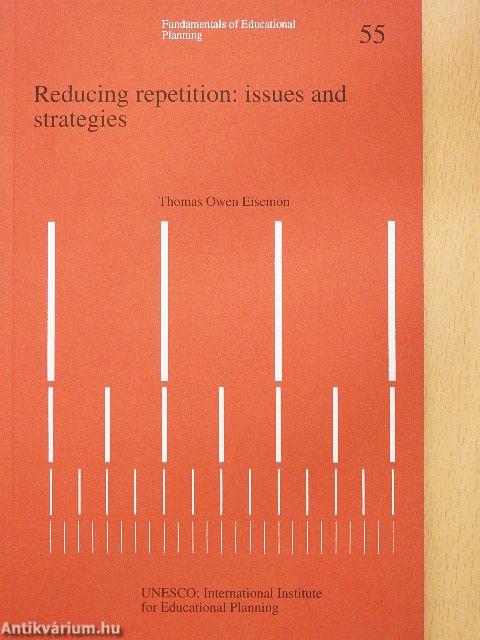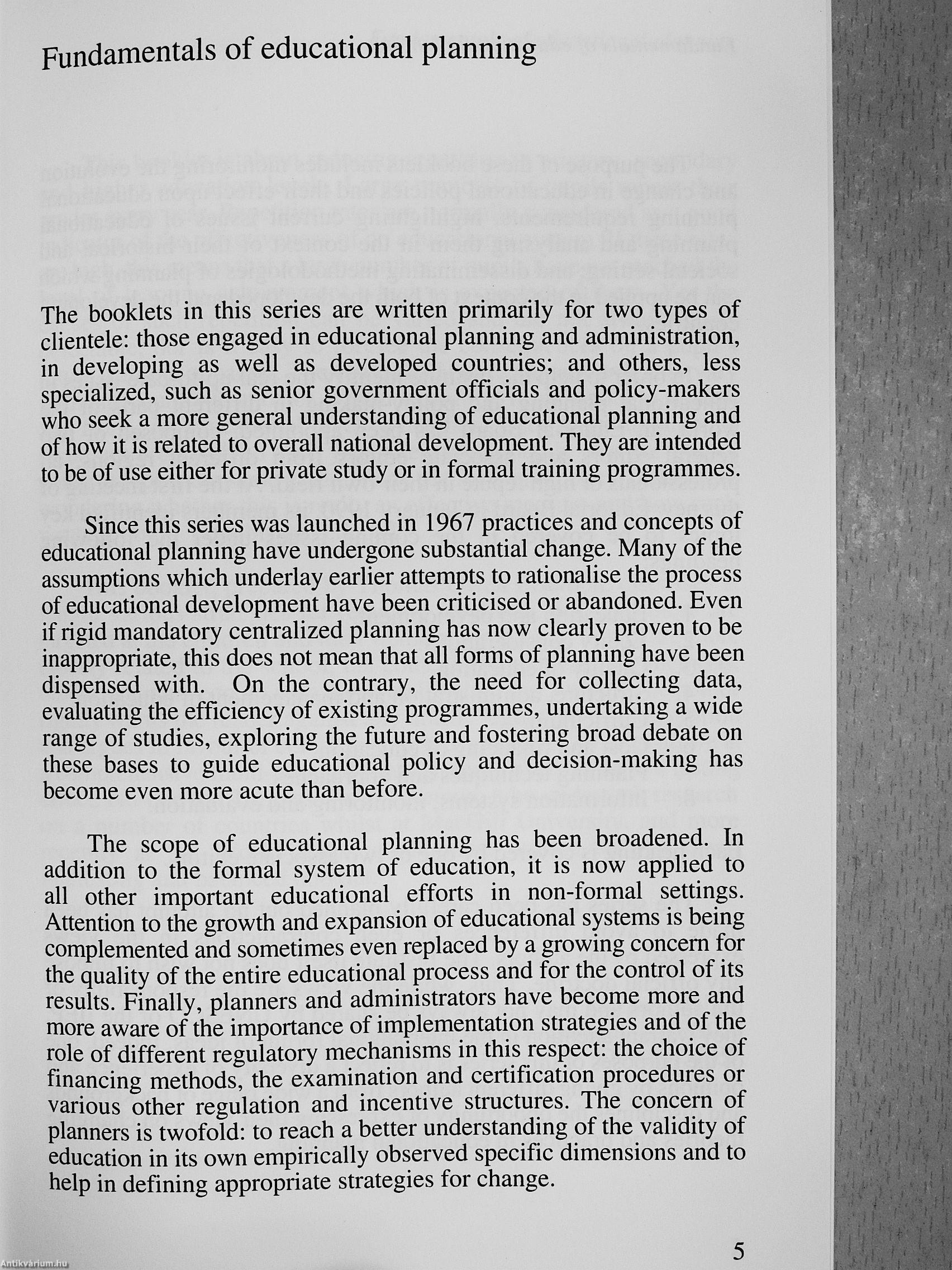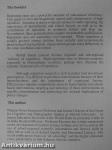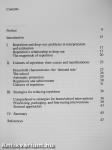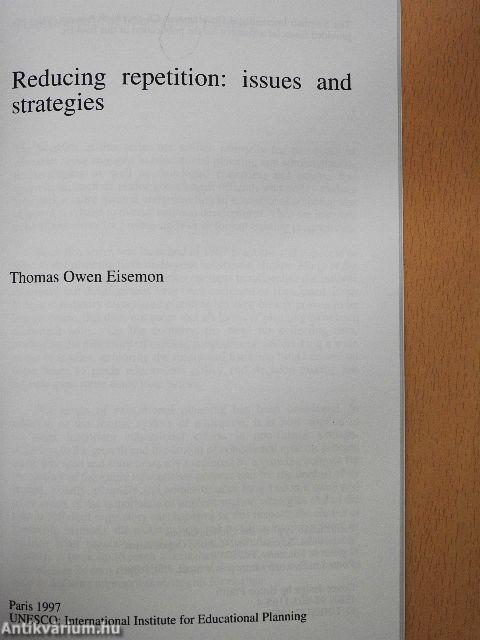1.104.374
kiadvánnyal nyújtjuk Magyarország legnagyobb antikvár könyv-kínálatát

VISSZA
A TETEJÉRE
JAVASLATOKÉszre-
vételek
Reducing repetition: issues and strategies
| Kiadó: | Unesco: International Institute for Educational Planning |
|---|---|
| Kiadás helye: | Párizs |
| Kiadás éve: | |
| Kötés típusa: | Ragasztott papírkötés |
| Oldalszám: | 54 oldal |
| Sorozatcím: | Fundamentals of Educational Planning |
| Kötetszám: | 55 |
| Nyelv: | Angol |
| Méret: | 21 cm x 13 cm |
| ISBN: | 92-803-1165-4 |
naponta értesítjük a beérkező friss
kiadványokról
naponta értesítjük a beérkező friss
kiadványokról
Előszó
TovábbFülszöveg
The booklet
Repetition rates are a powerful measure of educational efficiency. This paper reviews the magnitude, causes and consequences of high repetition. Attention is drawn to the prevalence of under reporting, the importance of home/family and school factors, as well as to the contribution of repetition to academic failure and drop out. Nevertheless, these generalizations require considerable qualification. Repetition rates are sometimes over reported. While repetition is usually greatest among children from socially and economically disadvantaged backgrounds, marginalized groups react differently to the same conditions and stimuli.
Global trends conceal distinct regional and sub-regional 'cultures' of repetition. High repetition rates in African countries, especially in Francophone countries, perhaps best illustrate the systemic characteristics of repetition.
Although repetition research is rich in policy and investment prescriptions, it is difficult to prioritize... Tovább
Fülszöveg
The booklet
Repetition rates are a powerful measure of educational efficiency. This paper reviews the magnitude, causes and consequences of high repetition. Attention is drawn to the prevalence of under reporting, the importance of home/family and school factors, as well as to the contribution of repetition to academic failure and drop out. Nevertheless, these generalizations require considerable qualification. Repetition rates are sometimes over reported. While repetition is usually greatest among children from socially and economically disadvantaged backgrounds, marginalized groups react differently to the same conditions and stimuli.
Global trends conceal distinct regional and sub-regional 'cultures' of repetition. High repetition rates in African countries, especially in Francophone countries, perhaps best illustrate the systemic characteristics of repetition.
Although repetition research is rich in policy and investment prescriptions, it is difficult to prioritize interventions because of their interrelatedness and the importance of contextual factors. Effectiveness requires comprehensiveness in home/family and school-based interventions, targeting and tailoring of these interventions to specific circumstances and addressing the sectoral implications of policy changes.
The author
Thomas Owen Eisemon is Professor and former Director of the Centre for Cognitive and Ethnographic Studies at McGill University. As Senior Education Speciahst at the World Bank he presently works in its India Resident Mission. Professor Eisemon has written extensively on the development of modem science in India and Africa and on the use of school-acquired scientific information and literacy skills in daily life as well as on School Quality and Functional Literacy. His recent publications focus on 'de-schooling' and the higher education crisis, particulariy in Sub-Saharan African countries. Vissza
Témakörök
- Idegennyelv > Idegennyelvű könyvek > Angol > Pedagógia
- Pedagógia > Oktatás > Egyéb
- Pedagógia > Tevékenységek > Tanulás
- Pszichológia > Általános lélektan > Összefoglalók
- Pszichológia > Fejlődéslélektan > Általános
- Pszichológia > Idegennyelvű > Angol
- Idegennyelv > Idegennyelvű könyvek > Angol > Pszichológia



